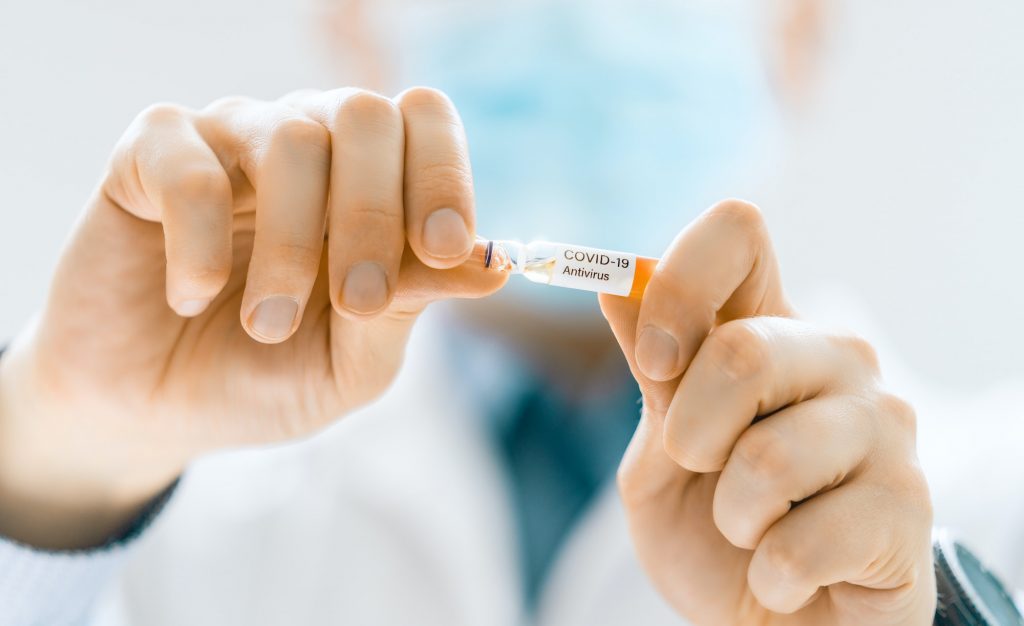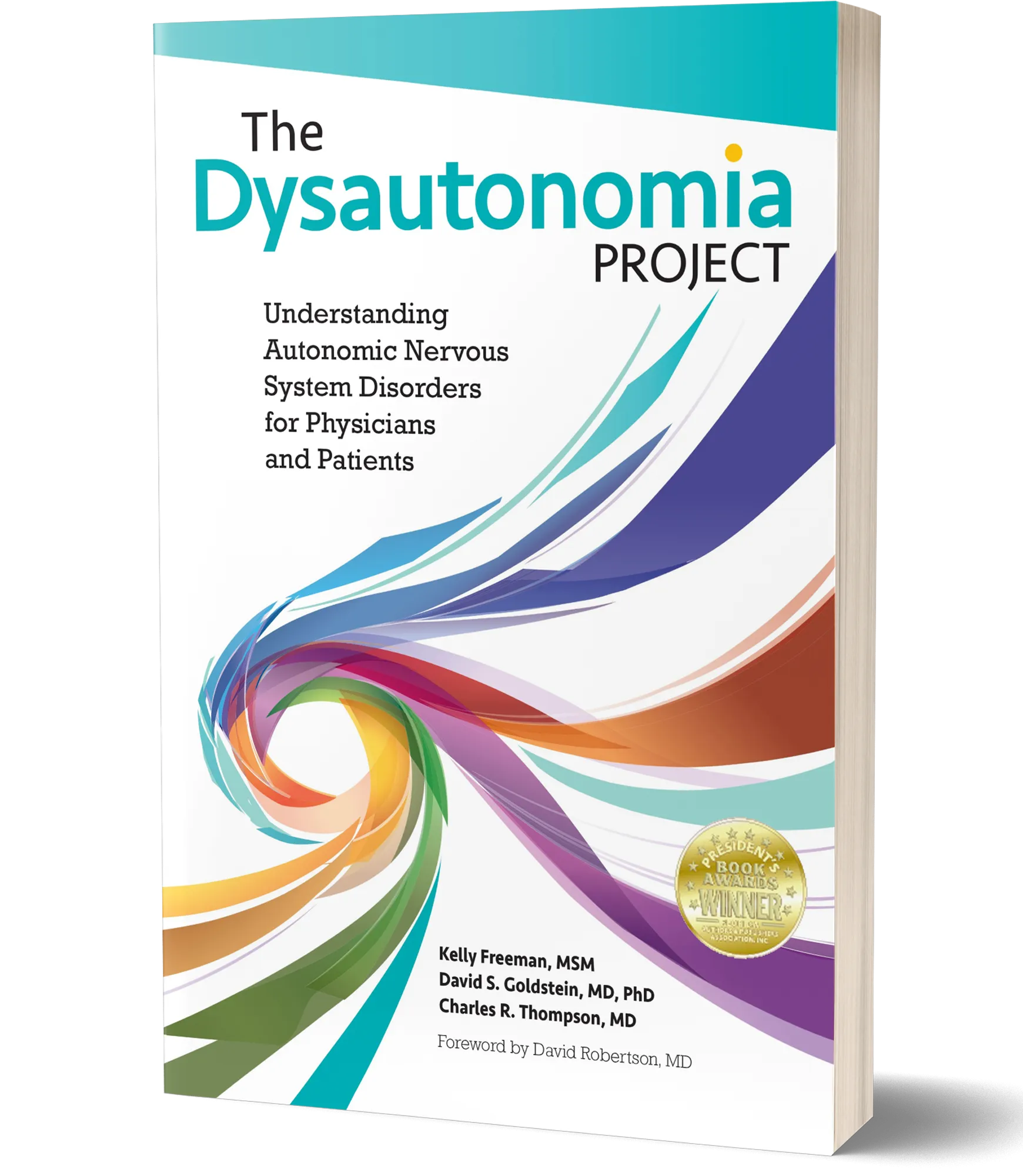SYMTPOMS OF LONG COVID AUTONOMIC DYSFUNCTION
Fatigue • Cognitive Impairment • Weakness • Headache • Dizziness • Shortness of Breath • Palpitation • Chest Discomfort • Sleep Disturbance • Difficulty Standing • Abdominal Pain • Nausea • Diarrhea • Joint and Muscle Pain • Anxiety or Depression • Skin Rashes • Pins & Needles Feeling • Earache or Ear Ringing
WHAT IS LONG-COVID AUTONOMIC DYSFUNCTION?
Long-COVID, also known as Post-Acute COVID Syndrome, is the development of chronic and potentially debilitating symptoms which may include fatigue, cognitive impairment, weakness, headache and dizziness among many others. Symptoms of Long-COVID occur in multiple organ systems and present heterogeneously following an acute COVID-19 infection. Several scientific studies have hypothesized the virus may be causing dysfunction of the autonomic nervous system1 2 3.
“While most people with COVID-19 illness recover completely, others continue to experience chronic and diverse symptoms including autonomic manifestations,” conclude members of the American Autonomic Society in a consensus statement4. Individuals with Long-COVID have continued symptoms after more than 12 weeks following an acute infection5. In a report of 20 patients with Long-COVID Autonomic Dysfunction 60% were unable to return to work 6-8 months following the initial illness6. Importantly, most individuals who were properly diagnosed and treated for autonomic symptoms reported some degree of improvement.
THE PROBLEM: POTENTIAL FOR A SECOND PUBLIC HEALTH CRISIS
Prior to the COVID-19 pandemic, medical centers specializing in autonomic medicine were already short on resources with wait times varying from 6-12 months. With the emergence of Long-COVID Autonomic Dysfunction, a large number of new patients are currently being referred to the same autonomic specialty centers. There is now enormous pressure put on these organizations as well as community-based healthcare professionals to recognize, diagnose and treat the growing number of patients. Long-COVID Autonomic Dysfunction has the “potential to produce a second public health crisis on the heels of the pandemic itself.”7 Reports of Long-COVID Autonomic Dysfunction are being published across the globe including research from North America, the United Kingdom8, Sweden9, Malaysia10, Argentina11, Czech Republic12 and Oman13. Developing a greater understanding of Long-COVID Autonomic Dysfunction including research investments about the progression, pathophysiology and treatments will be imperative in coming months and years.

EDUCATION IS THE SOLUTION: YOU CAN HELP!
Resources to educate community-based health-care professionals and their patients/families about Long-COVID Autonomic Dysfunction will be crucial to reduce the growing burden on our health care system. The Dysautonomia Project has created a portal on our website to help healthcare professionals learn more about this growing patient population.
We recommend all healthcare professionals be equipped to do 3 things:
- Understand and recognize Long-COVID Autonomic Dysfunction
- Appreciate the, sometimes, disabling symptom burden felt by patients and their families
- Diagnose and manage cases at the local level
We also recommend that all healthcare professionals including nurses and therapists familiarize them-selves with Long-COVID Autonomic Dysfunction to provide supportive care.
You can help by spreading the word about Long-COVID Autonomic Dysfunction with anyone you know who provides healthcare in your community.
Online Resources
Persistent Brainstem Dysfunction in Long-COVID: A Hypothesis (MALAYSIA)
Autonomic dysfunction following COVID-19 infection: an early experience
Autonomic dysfunction in ‘long COVID’: rationale, physiology and management strategies (UK)
The Post-acute COVID-19 Syndrome (Long COVID) (OMAN)
New-onset Postural Orthostatic Tachycardia Syndrome Following Coronavirus Disease 2019 Infection
Acute and Post-Acute Neurological Complications of COVID-19
How and why patients made Long Covid (UK)
What can neuroimmunology teach us about the symptoms of long-COVID? (UK)
Sources
- Shouman K, et. al. Autonomic Dysfunction Following COVID-19 Infection: An Early Experience. Clin Auton Res. 2021 April 16: 1-10.
- Dani, Melanie, et. al. Autonomic Dysfunction in ‘Long-COVID’: Rationale, Physiology and Management Strategies. Clin Med (Lond). 2021 Jan 21: e63-367.
- Goldstein, David S. The Extended Autonomic System, Dyshomeostasis, and COVID-19. Clin Auton Res. 2020 Jul 22: 1-17.
- Raj, Satish R., et. al. Long-COVID Postural Tachycardia Syndrome: An American Autonomic Society Statement. Clin Auton Res. 2021 Mar 19: 1-4.
- National Institute for Health and Care Excellence (NICE) (2021) COVID-19 rapid guideline: managing the long-term effects of COVID-19.
- Blitshteyn S. and Whitelaw S. Postural Orthostatic Tachycardia Syndrome (POTS) And Other Autonomic Disorders After COVID-19 Infection: A Case Series Of 20 Patients. Immunol Res. 2021 Mar 30: 1-6.
- Rando, Halie M., et. al. Challenges in Defining Long COVID: Striking Differences Across Literature, Electronic Health Records, And Patient-Reported Information. Preprint. medRxiv. 2021 Mar 26
- Mondelli, Valeria and Pariante, Carmine M. What can neuroimmunology teach us about the symptoms of long-COVID? Oxf Open Immunol. 2021 Feb 10.
- Johansson, Madeleine, et. al. Long-Haul Post-COVID-19 Symptoms Presenting as a Variant of Postural Orthostatic Tachycardia Syndrome. JACC Case Rep. 2021 Apr 3(4): 573-580
- Yong, Shin Jie. Persistent Brainstem Dysfunction in Long-COVID: A Hypothesis. ACS Chem Neurosci. 2021 Feb 17; 12(4): 573-580.
- Barrantes, Francisco J. The unfolding palette of COVID-19 multisystemic syndrome and its neurological manifestations. Brain Behav Immun Health. 2021
- Stefano, George B. Historical Insight into Infections and Disorders Associated with Neurological and Psychiatric Sequelae Similar to Long COVID. Med Sci Monit. 2021 Feb 26.
- Al-Jahdhami, Issa, et. al. The Post-acute COVID-19 Syndrome (Long COVID). Oman Med J. 2021 Jan; 26.






2 Responses
This article is coming up on three years old. Can you direct me to the most current information. I was a plumber for Washington State University. I worked with lab techs from China everyday, plus our own labs were working on Covid related projects. I got sick in December of 2019. It took until March for me to be diagnosed with Covid. It took until January of 2023 to be diagnosed with Autonomic Nervous System damage. I had to quit working and driving. I have been denied unemployment and disability many times. Everyone I talk to at the State and Federal governments say they haven’t heard anything about Covid causing nervous system damage.
We do need to update our Long Covid info which is planned for next year- there will be a whole chapter in the 2nd edition of the book on the topic and before it is published a summary may be added to our website. In the meantime, there is plenty of scientific information on this topic:
From NIH
https://www.ncbi.nlm.nih.gov/pmc/articles/PMC7850225/#:~:text=It%20has%20been%20hypothesised%20that,affects%20the%20autonomic%20nervous%20system.&text=The%20relationship%20between%20the%20two,inducing%20pro%2Dinflammatory%20cytokine%20release.
From Mayo
https://pubmed.ncbi.nlm.nih.gov/33860871/
A consensus statement from several AAS members
https://pubmed.ncbi.nlm.nih.gov/36169154/
If you need more science-based information an easy way to find is to search “Pubmed COVID Autonomic Dysfunction”. Hope this helps!